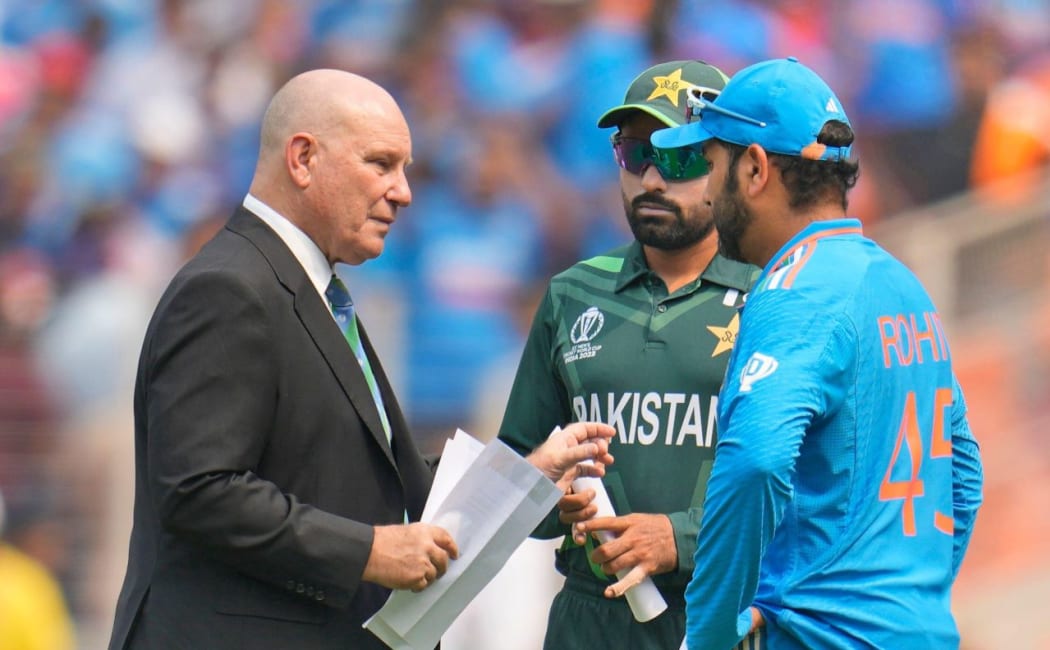No Assurance of India-Pakistan Handshakes in Women’s World Cup Clash

No Assurance of India-Pakistan Handshakes in Women’s World Cup Clash
As the ICC Women’s World Cup approaches, tensions from earlier cricketing showdowns continue to reverberate. The secretary of the Board of Control for Cricket in India (BCCI), Devajit Saikia, has publicly stated that he cannot guarantee a handshake between Indian and Pakistani players when they meet on the field in Colombo. This announcement reinforces a growing narrative: cricket diplomacy may well remain strained even in the realm of women’s sport.
Background: Asia Cup and the Handshake Snub
The controversy stems from the recent men’s Asia Cup, where India and Pakistan clashed three times, culminating in the final. During that tournament, Indian players repeatedly avoided the customary handshake with Pakistan’s team, drawing widespread criticism. In one notable moment, India even declined to accept the trophy from Mohsin Naqvi, the Asian Cricket Council head who also chairs the Pakistan Cricket Board. Those episodes set the tone for what could unfold in the Women’s World Cup.
What Saikia Says: ‘No Assurance’ on Handshakes
In an interview with BBC, Saikia admitted that he cannot predict how gestures of sportsmanship will play out:
“I cannot forecast anything … There is no change in the last week. Whether there will be handshakes, whether there will be hugging, I cannot assure you of anything at this moment.”
However, he reiterated that India will adhere to the MCC (Marylebone Cricket Club) regulations for the match, meaning all formal cricket protocols will be respected, even if personal gestures remain uncertain.
Women’s Team in the Crosshairs
The upcoming India vs Pakistan women’s match is set to take place in Colombo on October 5, 2025. Because of long-standing political tensions and a lack of bilateral cricket ties since 2013, all Pakistan’s matches in this World Cup will be played at neutral venues (primarily in Sri Lanka).
Reports suggest that India’s women’s team will follow in the footsteps of the men’s squad, skipping not only handshakes but also the post-match photo shoot with referees and possibly avoiding any public display of camaraderie.
Notably, during India’s opening game in Guwahati, all-rounder Amanjot Kaur was asked whether the Indian side would shake hands with Pakistan but deliberately sidestepped the question: “One day at a time,” she responded.
Pakistan’s Position & Preparations
Meanwhile, Pakistan’s women’s squad is on alert. The team is reportedly being guided by the Pakistan Cricket Board (PCB) on how to react if India refuses customary gestures.
Team manager Hina Munawar is coordinating instructions for the players, ensuring they understand their stance ahead of the high-stakes match. Fatima Sana’s side is aware that relations between the two countries remain politically charged and that the game may become more than just a contest of cricket.
It’s worth noting that Pakistan women have yet to record a win against India in Women’s ODIs, across eleven meetings. This adds another layer of intensity to the clash.
Implications & What Could Follow
The handshake snub, if it happens, would carry symbolic weight. Cricket has long been seen as a diplomatic channel between the two nations — such violations of sportsmanship amplify political rhetoric and deepen divides.
For the women players, this means the spotlight isn’t just on runs, wickets, or strategy — but on how each side reacts to tension under pressure. The match could become a symbolic extension of the Asia Cup drama. Observers expect similar on-field behavior and off-field tension.
In the event Pakistan advances to the semifinals or final, those matches, too, would be played in Colombo — preserving neutrality in venue
Final Thoughts
At its core, cricket is meant to bridge divides, not reinforce them. But in the current India-Pakistan climate, even symbolic gestures like handshakes are charged with deeper implications. With BCCI signaling uncertainty and India expected to mirror their men’s team’s stance, the Women’s World Cup match in Colombo may see silence where sportsmanship normally lies.
Still, whatever happens on October 5, cricket enthusiasts around the world will be watching — not just for the scorecard, but for what it might mean for diplomacy in sporting arenas.
